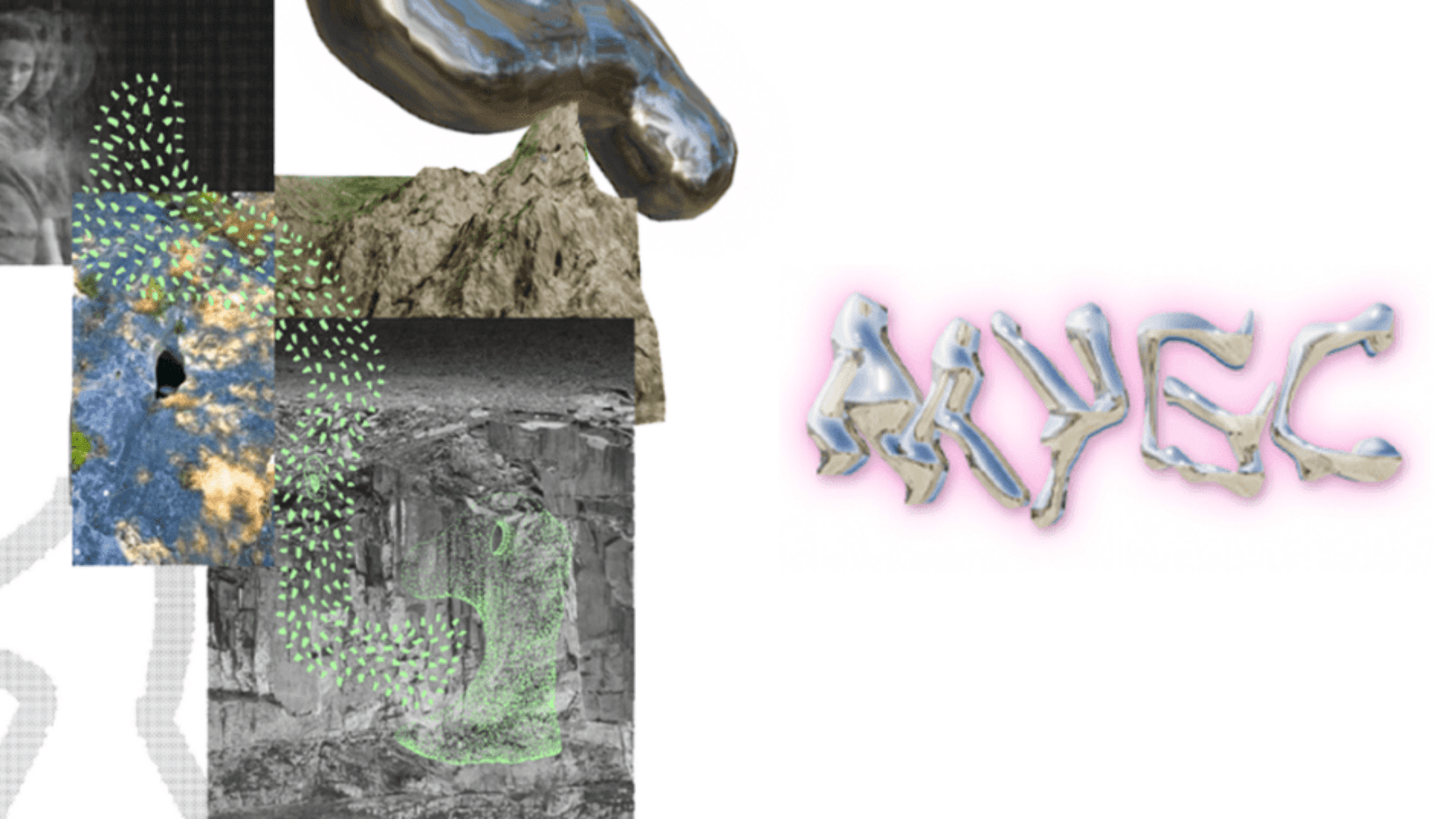Hannah Cash & Gweni Llwyd

Following the fantastic success of the Merched yn Gwneud Miwsig zines, this special edition, Merched yn Gwneud Celf, is curated by two winners of the Young Artists Scholarship at the Eisteddfod in 2018 and 2019. Gweni Llwyd won in 2018 and Hannah Cash was awarded the scholarship a year later in 2019. We asked them a handful of questions about their creative practices, the zine and what opportunities there are for women in the visual arts world.
Where did the interest to create art come from?
Gweni: I think a combination of early experiences inspired my interest. I was brought up in the weird landscape of the Nantlle Valley, being dragged to raves and parties by my parents in the 90s and 00s, growing up on the internet. I think my style still reflects these experiences – themes like the senses, the physical, digital and the absurd still flow through my work.
I also remember being in year 7 and the DT Teacher telling me that I wasn’t ‘creative’ (just because I couldn’t create a mind map the way he wanted me to, or something!), so maybe I took that as a challenge? I’ve been working as a freelance artist for 4 years and I’m starting a masters course in fine art in September so I’m quite confident that I’ve managed to prove him wrong by now!
Hannah: Art was one of my favourite subjects at school and I had a great teacher who encouraged me to experiment with materials, and once I decided to go and study at university, I realised that working as an artist was a possibility. I enjoyed the process of creating work and working with people across different disciplines. And the actual process of creating things still drives me today rather than the result.
What do you enjoy most about being an artist in Wales?
Gweni: Meeting and working with other artists! It feels as though most of the artists here want some dialogue with other people, want to help each other and want exciting things to happen in Wales. I’ve been working as part of a collective for a number of years and I really enjoy the support that comes from working with others as a group. I think there’s more of a collective ethos and wanting others to succeed between artists in a lot of Wales, which is different to a lot of other places.
Hannah: One thing I’ve discovered after graduating is that there are people out there that are very willing to help to apply for funding, offer feedback and guidance to develop your career. I think one of the key things when starting out as an artist is finding the good people who are happy to help you.
What did you enjoy most about choosing artists for this zine?
Gweni: I loved researching the artists and curating a shortlist of such exciting and diverse work. I really enjoyed working with Hannah – I felt we shared a similar aesthetic vision, and it was great to learn more about the artists she’d chosen.
Hannah: It’s definitely seeing the work they wanted to show or discuss. I also think I enjoyed choosing a variety of artists working across disciplines. Also, I’ve really enjoyed working with Gweni and being able to discuss the design process and we’ve managed to get the zine to look just the way we wanted it to.
What does the future look like for artists in Wales? What can the country do to better support artists?
Gweni: I’m not sure what the future looks like for artists in Wales – the post-Brexit, post-COVID political situation is worrying. But I feel strongly that there is so much potential for art in Wales, and perhaps people like funders in Wales need to take more risks and be more open to experimental processes and systems, which value real experiences instead of just ticking boxes. There’s definitely a need for more support, opportunities and funding for people from working class backgrounds, people of colour, LGBTQ + people and other marginalised people in Wales – I think the country has a tendency to be lazy with things like opportunities and programming that always favour the same people. There needs to be equal play.
Hannah: I think sometimes it can be difficult to create work, when the facilities for creation are not readily available in north Wales. I think I’ve been lucky with the contacts I’ve made that have given me opportunities. Which makes me think of those who don’t have access to contacts in the art world, what do they do? I think help is definitely needed to create funding or residencies targeting and helping artists from all backgrounds transition from studying to becoming a graduate artist or early career artist. I think some of these opportunities exist in south Wales but not so much in north Wales. I think help with developing funding applications is an essential resource that everyone should be able to access.
Do you think there are plenty of opportunities for women creating art in Wales?
Gweni: Probably not to be honest – it would be great to see more!
Hannah: At the moment, I wouldn’t say there’s specific chances looking at developing opportunities for women in the arts. It’s been great working with women on this project and I’d like to see similar opportunities in the future.
